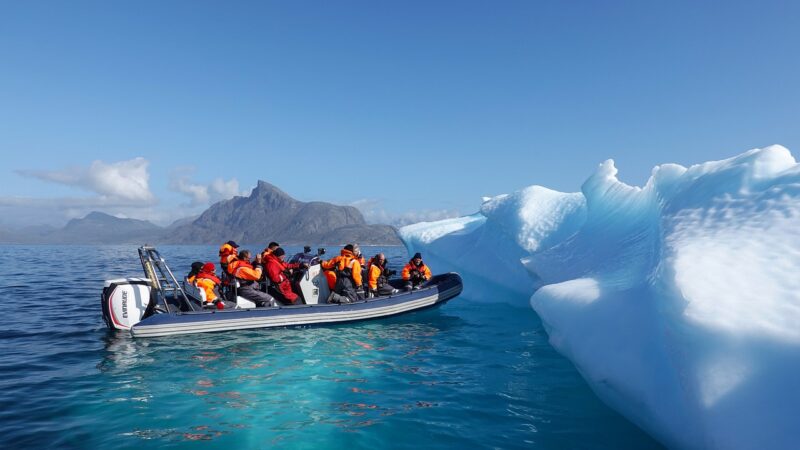How the Ocean Influences Climate, Weather, and the World’s Ecosystems
November 16, 2024

The ocean is much more than just a vast body of water; it plays a crucial role in shaping the climate and weather patterns of our planet. Covering over 70% of the Earth’s surface, the ocean acts as a massive heat reservoir, influencing temperature, atmospheric circulation, and precipitation patterns.
As we delve into the intricate relationship between the ocean and climate, we will explore how oceans regulate weather systems, their impact on global ecosystems, and the effects of climate change on these vital resources.
1. The Ocean as a Climate Regulator
The ocean absorbs approximately 30% of the carbon dioxide produced by human activities, acting as a buffer against climate change. The heat capacity of water is significantly higher than that of air, allowing oceans to absorb and store large amounts of heat, moderating global temperature changes.
– **Heat Distribution**: The ocean transports heat from the equator toward the poles through ocean currents. This process, known as thermohaline circulation, creates a global conveyor belt of warm and cold water, influencing regional climates.
– **Carbon Sink**: Oceanic systems, particularly phytoplankton, absorb carbon dioxide and produce oxygen through photosynthesis, playing a vital role in regulating the atmosphere’s gas composition.
The interaction of ocean temperature and atmospheric conditions leads to significant climate phenomena, including El Niño and La Niña, which have profound effects on global weather patterns.
2. Weather Patterns Driven by Oceanic Influences
Weather systems are intricately linked to oceanic conditions. Variations in sea surface temperatures can trigger shifts in wind patterns, precipitation, and storm development.
– **Tropical Storms and Hurricanes**: Warm ocean water is a critical factor in the formation of hurricanes. When ocean temperatures rise, they provide the necessary heat and moisture needed for powerful storms to develop. Rising sea temperatures have been correlated with increased frequency and intensity of hurricanes, posing risks to coastal communities.
– **Droughts and Floods**: Ocean currents such as the Gulf Stream affect how heat circulates globally, influencing rainfall patterns. Changes in these currents can lead to extreme weather events, including severe droughts in some areas and increased flooding in others.
– **Global Climate Change Feedback Loops**: As ocean temperatures rise due to climate change, they can lead to more significant evaporation rates, affecting cloud formation and precipitation patterns, further compounding climate impact as atmospheric temperatures continue to rise.
3. The Ocean’s Ecosystems and Their Global Role
The ocean is home to diverse ecosystems, each playing a significant role in maintaining the health of the planet.
– **Coral Reefs**: Often referred to as the “rainforests of the sea,” coral reefs are among the most productive ecosystems on Earth. They provide habitat and shelter for numerous marine species, support fisheries, and protect coastal communities from erosion and storm damage. Coral reefs are highly sensitive to changes in ocean temperature and acidity, making them vulnerable to climate change.
– **Marine Biodiversity**: The ocean hosts an estimated 230,000 known marine species, with many more yet to be discovered. Healthy marine ecosystems contribute to the overall functioning of the planet by supporting biodiversity, supplying food, and regulating carbon cycling.
– **Fisheries and Livelihoods**: Oceans provide livelihoods for millions of people worldwide. Sustainable fishing practices are essential to maintaining marine life and ensuring food security, especially for coastal communities.
The health of ocean ecosystems is inextricably linked to climate stability, making ocean conservation efforts essential in combating climate change.
4. Climate Change and Its Impact on Oceans
Climate change poses severe threats to ocean health, with far-reaching consequences for climate, weather, and ecosystems.
– **Ocean Acidification**: Increased atmospheric carbon dioxide leads to higher CO2 levels in the ocean, causing water to become more acidic. This process threatens marine life, particularly organisms with shells and skeletons, such as corals, mollusks, and certain plankton species.
– **Rising Sea Levels**: Melting ice caps and glaciers, along with thermal expansion of seawater, contribute to rising sea levels, threatening coastal communities and ecosystems.
– **Loss of Biodiversity**: Climate change-induced changes in ocean temperatures and currents disrupt the habitats of many marine species, leading to shifts in populations, reduced species diversity, and increased extinction risks.
The alarming rate at which these changes are occurring underscores the urgent need for global action to mitigate climate change and protect our oceans.
5. The Path Forward: Protecting Oceans for Future Generations
Given the ocean’s critical role in climate regulation and ecosystem health, protecting its resources is paramount.
– **Sustainable Practices**: Implementing sustainable fishing and farming practices, reducing plastic pollution, and conserving marine habitats are essential strategies for safeguarding ocean health.
– **Climate Change Mitigation**: Transitioning to renewable energy sources and enforcing policies aimed at reducing greenhouse gas emissions can help slow climate change and its impact on oceans.
– **Global Cooperation**: International collaboration is vital in addressing issues like overfishing, plastic waste management, and pollution control. Efforts such as the Marine Protected Areas (MPAs) initiative aim to conserve critical marine habitats while promoting sustainable usage.
The ocean is an integral component of our global climate system. Understanding and addressing the complex interactions between oceans, weather, and ecosystems is crucial for creating a sustainable future for generations to come.
Conclusion
As we continue to navigate the challenges posed by climate change, it is essential to recognize and appreciate the ocean’s invaluable contributions to climate, weather, and the world’s ecosystems. From regulating temperatures to sustaining marine life, the ocean provides critical services that are essential to our survival. Protecting this vast, interconnected resource must be a collective effort, requiring commitment from governments, organizations, and individuals alike.
By prioritizing the health of our oceans, we not only secure a sustainable future for marine ecosystems but also contribute to global climate stability and, ultimately, the well-being of our planet.







